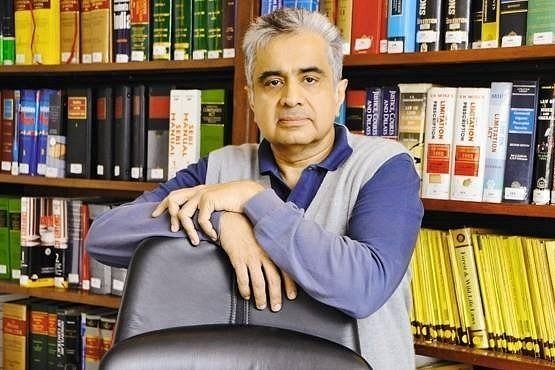
Watch: Noted Lawyer Harish Salve Explains Rationale Behind CAB And Dispels Myths Being Perpetrated By Bill’s Critics
The Lok Sabha, in a late night sitting on Monday (9 December), passed the Citizenship Amendment Bill amidst a vote of 311 in its favour and 80 against it out of 391 members who were present and voting.
The Bill is being opposed by the opposition parties that are saying that it is discriminatory against Muslims and is in violation of the Constitution.
In an interview with Times Now, legal luminary Harish Salve, who represented India in the Kulbhushan Jadhav case in International Court of Justice (ICJ), defended the CAB and punctured the arguments made by opposition parties against the proposed amendment.
“This is a narrow-tailored law specifically meant to deal with those who are being persecuted by our three Islamic neigbours,” Salve said.
He further said that the proposed CAB does not violate Articles 15 and 21 as these provisions of the Indian Constitution are only applicable to those who “live in India, reside in India, not those who want to enter India”. He also said that those arguing that the proposed law violate the Article 14 have completely “misplaced understanding of the Constitution”.
On the question that the bill discriminates against the Muslims in three neighbouring Islamic countries, the noted lawyer said that somebody belonging to religion of state itself cannot be subjected to religious persecution. “This is not to open the gates for economic migration,” he said.
“If somebody wants political asylum because he is being politically persecuted in that state, he’ll come under the general rule of asylum,” Salve said.
“This law doesn’t say that Muslims of neighbouring states will never be given citizenships,” he added.
On the question of persecution being faced by Shia, Hazaras and Ahmeddiyas in neighbouring states and why aren’t they included in the bill, the noted lawyer said, “In those states, you may have sections. The Shias and Sunnis have the problems, the Ahmeddiyas and the Shias and Sunnis have a problem,”
He said that the different sects of Islam have intra-religion problems and that the religion divides on the basis of who follow Islamic faith and those who follow non-Islamic faiths.
“The purpose of this law is not to address the governing problems in our neighbouring countries,” he said while adding that the proposed law provides for relocation of those people who do not follow the Islamic faith, which is the majority religion in the neighbouring states.
“India owes no obligation to the neighbouring states to go and find people who are being badly treated and allow them to make home in India,” he said.
He also slammed those arguing that Parliament should not discuss the bill because of the lack of the legislative competence.
Addressing the moral argument against the bill, he said that in the three Islamic Republics mentioned in the bill, there is a problem faced by minorities and a narrow-tailored bill to address the problem is not against the secular nature of Indian Constitution.